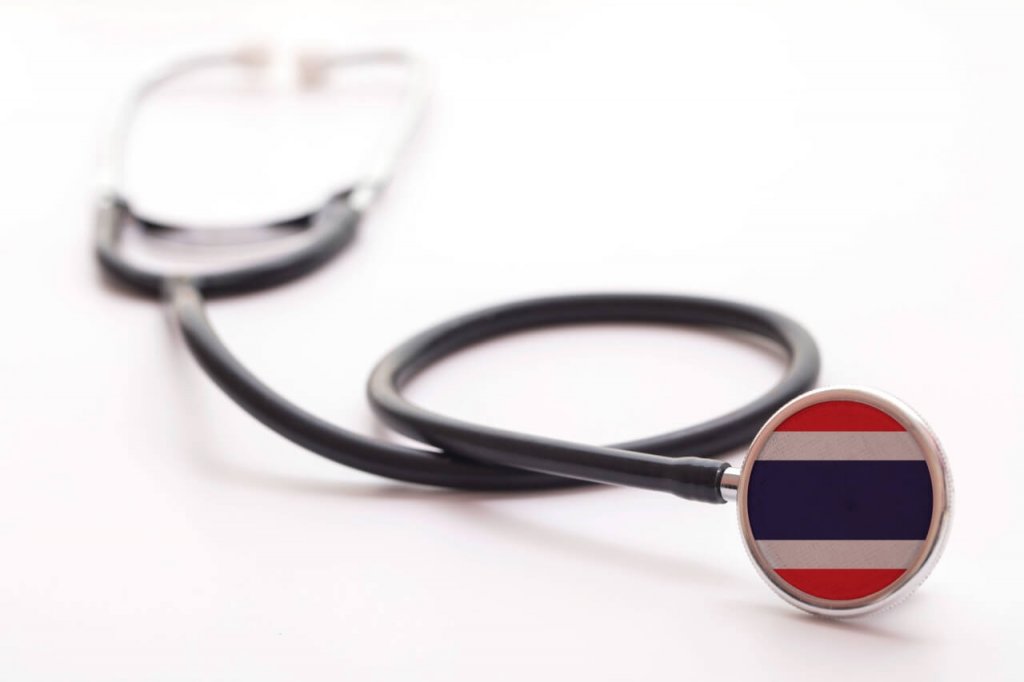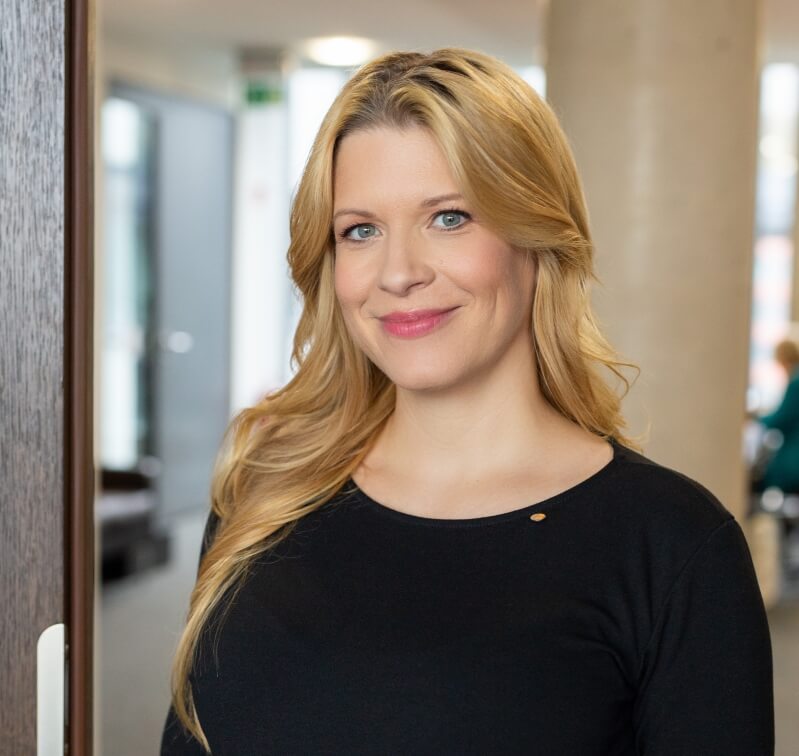The topic of expat health insurance for Thailand is very much on my mind right now. A doctor friend of mine has written an article about it, which I published recently.
Now I also had the opportunity for an interview with a representative of a health insurance company in Germany that operates worldwide. Of course, I did not miss this opportunity.
Ms. Schwanitz, can you tell us something about the BDAE?
BDAE originally stands for “Bund der Auslands-Erwerbstätigen” (BDAE), which is a somewhat unwieldy and no longer accurate name, since we don’t just insure people who are gainfully employed. We can cover any person – regardless of nationality – anywhere in the world – whether the stay is work-related or otherwise motivated.
We emerged from BDAE e.V., an association founded by our company founders more than 25 years ago. In the meantime, we have become a group of companies and officially operate as the BDAE Group.
This means that BDAE is not the actual insurer. Which companies would I be insured with if I decided to take out one of the international health insurance policies on the www.versichert-im-ausland.com/optimal-versichert-in-thailand website?
It is true that we are not an insurer. However, we are not an insurance broker in the classical sense either. We develop our insurance products ourselves to the greatest possible extent, advise our customers, manage the contracts – i.e. take care of the entire administration – and also settle the claims in-house.
We offer our customers insurance cover under a group insurance contract; external insurers are therefore our contractual partners and at the same time the risk carriers. However, our exclusive insurance products can only be purchased through us or through insurance brokers and multipliers, and not from the insurers. And we notice time and again that we are perceived by the public as an insurance company. In Anglo-Saxon, this model is known as MGU – Managing General Underwriter.
There can even be several partners behind an insurance product. We currently cooperate with Swiss Life, Würzburger Versicherung, ARAG and Allianz Partners Germany. For example, we have integrated the assistance services of Allianz and the international patients’ legal protection insurance of ARAG as add-ons in all our long-term international health insurance policies.
Time and again, expats ask if there is an age limit for joining an expat health insurance for Thailand.
Yes, this is indeed a common question. With our EXPAT INFINITY – which is the most suitable expat health insurance for Thailand – the age limit is 75, which is unusually high for our industry. Often the limit is 65 or 66 years. Behind this is a calculation based on experience, according to which the insured risk increases the higher the entry age of a person to be insured.
This is why it is so important for people abroad to think about adequate health insurance coverage in old age at an early stage, if possible, for an unlimited period of time. Even if the persons are still living in Europe, for example, because they are currently still working or are in the process of planning their emigration, it is worth taking care of the issue of health insurance at an early stage.
For example, we offer a qualifying insurance within the EXPAT INFINITY; this means that the INFINITY can not only be put on qualifying status during the term of the contract, but that a qualifying insurance for the INFINITY can also be started directly. This means that a qualifying insurance is already taken out now and as soon as the dream of retirement in Thailand begins, the Infinity is placed on active status. This offers the advantage that the current health status is frozen and there is no new health check when emigrating.
With the Expat Infinity tariff, there is no age limit apart from the starting age, but there is an age-related increase in premiums. Are the increases fixed and can you rely on them, or are there constellations in which the premiums could be higher?
Insurance premiums are not fixed with any private insurer (nor with the statutory ones) in the world. We check the development of insurance claims annually and then decide on this basis whether an adjustment is necessary for the respective insurance year. Unfortunately, it is simply not possible to predict whether premium adjustments will be necessary each year. There are years in which no premium adjustment was necessary with the BDAE – however, there is no guarantee for this.
In the case of the health insurance policies we offer abroad, the insurance premiums are calculated, among other things, against the background of the principle of the community of insured persons. This means that the community of all insured persons in an insurance product bears the health risk of each individual in this group. In statutory health insurance, this is also referred to as the solidarity principle. Increased costs are passed on to the “community”, so to speak, in order to “cushion” the increased cost risk for each individual.
For the products of the BDAE Group, this means that a so-called major loss, i.e. unexpectedly high health costs caused by individual insured persons, can lead to the income from insurance premiums no longer being in economic proportion to the expenses for insurance benefits. In such a case, there is a risk of a negative loss ratio. In this case, expenditures for health care costs would exceed revenues.
What requirements do I have to meet to be able to get insurance coverage through BDAE? Can I sign up for BDAE international expat health insurance if I am already in Thailand?
Basically, any person, regardless of nationality, can purchase insurance with us. (The most important condition for Germans abroad is that they mainly stay abroad. We are not allowed to insure Germans in Germany.)
We do not exclude any occupational groups. With us, divers and diving instructors can insure themselves in the same way as animal keepers and so on. (Note by Stefan: on www.versichert-im-ausland.com/optimal-versichert-in-thailand you can find 3 examples which are easy to understand. Have it translated to English with deepL.com).

On a different note, however, is the question of whether we also accept every application for overseas health travel insurance. This is where the greatest potential for conflict exists. For example, with EXPAT INFINITY we carry out a health check – based on a current medical certificate and a detailed health questionnaire.
We do this primarily because we also ensure pre-existing conditions and existing treatment needs in this product – for a corresponding risk surcharge. Depending on the “previous history” of the applicant, the following scenarios may occur:
1 The application is reviewed and, if the person’s health is impeccable, we insure him or her at the standard premium based on the country zone, his or her age and the selected deductible. The premium scale is transparently stored in the insurance documents on our websites.
2 Due to various pre-existing conditions, risk surcharges are levied, for example for a visual impairment or a back condition. The standard insurance premium then increases, but the person may have insurance coverage for the rest of his or her life.
3 The person applying has so many pre-existing conditions or a critical chronic condition that increases the risk of loss to such an extent that we must deny the application. Chronic conditions are a sensitive and very conflicting issue, as we know it can be a fiasco for those affected because they then cannot get insurance coverage and the dream of emigrating may then have to be buried. Often, a local insurance in the destination country is not an alternative either, because the insurers there proceed in a similar way. (Note by Stefan: maybe I have a solution for that case. Just send me a mail and describe your situation.)
But there are also other products – for example EXPAT FLEXIBLE. For people with pre-existing conditions and chronic illnesses and for emigrants, however, this has limitations: First, this product is limited to a term of five years, after which one must “reapply” for insurance coverage. Secondly, pre-existing conditions are not covered in these products.
This means that – depending on the clinical picture – we may have to check whether there is a pre-existing condition when reimbursing the costs. For this purpose, we also request medical reports and ask how long the condition has existed. If it turns out to be related to an existing condition, we would not reimburse. After all, the limited products are very favorable, precisely because the existing risks are excluded, and no aging provisions are formed.
In a post on my blog, a doctor friend of mine wrote extensively about the pros and cons of having expat health insurance for Thailand, and even gave the option of not having insurance at all, but instead living healthy and building up a financial cushion for illness. What do you think of this suggestion?
Here I have to backtrack a bit: health insurance is not a barter transaction in which I get back the equivalent of the premiums I paid. Rather, insurance can be compared to a bet. I am betting on an event that I hope will never happen. No one wants to become seriously ill and have to use insurance. If I stay healthy for years or even decades, I have paid high premiums for nothing. It is understandable that then the inner impulse arises to get the money back somehow. The point is that it is not exclusively about profit, but about individual risk protection with the help of a community – the community of insured persons.
Private insurers have to be profitable (which, by the way, is one of the cornerstones of a capitalist society) because otherwise they can no longer meet the needs of the community of insureds, i.e. they could no longer pay claims and, in the worst case, would have to dissolve this community.
Those who do not insure themselves shoulder their individual risk all by themselves. Those who pay into an insurance company spread the risk over many shoulders. I disagree with the statement that in the healthcare system it is always the patient who pays for everything in the end. It is the insured community that pays. If an insured person falls ill so badly that, for example, costs in the higher six-figure range are incurred, then this is absorbed or financed by the total number of contributions.
That’s why private health insurers also conduct health checks on lifetime products to assess potential risk. For the long-term expat health insurance industry, of which we are a part, one could cynically say: you have to be able to afford to emigrate health-wise. Strictly speaking, in addition to financial capital, you need health capital to emigrate. Or you take the risk of not being insured and do everything you can to stay healthy. But even there, unfortunately, the impact is limited, as we all know.
In our experience, deductibles on the premium can be an option to keep costs within reasonable limits within the expat health insurance for Thailand. If you have to pay a certain amount yourself in the event of a “claim”, similar to a partial cover car insurance, you might not go to the doctor immediately because of a “little ache”.
When it comes to Thai hospitals, it is certainly not far-fetched to assume that they charge a surcharge, especially for foreign patients. We are in good contact with our Thailand policyholders, and they are aware of their own responsibility and do not choose the most expensive hospital simply because they have the option, but rather seek out those facilities that they know treat patients well and efficiently. Trusting communication with the claims team can also help prevent health care costs from skyrocketing unnecessarily.
Does BDAE offer a tariff with which I can obtain a Certificate of Entry Thailand (CoE)?
So far, all of our long-term expatriate health insurance plans have been recognized by the Thai authorities. In terms of Covid 19 protection, our individual certificates have also been recognized. If any supporting documents, verifications, etc. are required, we try our best to provide our policyholders with the necessary documents.
Until now, it was necessary for the visa “non-immigrant O-A” from the second year to get a Thai insurance. But this is changing. Can you already give information about this?
According to some long-term customers insured in Thailand as well as Thai media reports, it seems that a Thai health insurance in addition to the expat health insurance for Thailand coverage for the “non-immigrant O-A” visa is no longer necessary and the authorities will accept a foreign health insurance that meets the defined requirements (for example Covid-19 protection, transfer in case of death, etc.) as proof. Practice will show whether this will be the case.

Which nationalities can BDAE insure?
We not only insure Germans abroad, but also foreigners of all nationalities worldwide. This applies just as much to the 30-year-old New York woman taking a sabbatical in Thailand as it does to the Japanese engineer sent to Dubai to work for an American technology group. We can just as easily insure Chinese employees of a German or foreign company in South Africa, in other words basically all nationalities everywhere. That also sets us apart from the competition. For example, if a French citizen marries a Thai and they both decide to live in his home country, we can even insure the Thai husband in our EXPAT INFINITY product.
Time and again, the case of not being covered for hospital costs in the event of a false-positive test in quarantine surfaces on social media channels. For example, one reader told me that he and his family were taken to the hospital because of a positive test from the ASQ hotel. They had to spend a couple of nights there and pay for that stay themselves because it turned out they did not have Covid-19. That may be a really rare occurrence, but many people also want to insure against the rare. Does the BDAE cover that?
We generally cover medically necessary treatments. This also applies to Covid 19 diseases. A positive test does not necessarily require hospitalization, so it is questionable why and on what basis the family was hospitalized because of a false positive test and apparently without symptoms.
If this hospitalization was only for quarantine purposes or because of legal requirements of the country, we would not accept this. In our view, a false positive test alone does not create the need to go to a hospital. As a rule, patients go to hospital when they are not feeling well, and symptoms or suspected cases need to be clarified and there is therefore a certain necessity.
From our point of view, it always depends on the entire circumstances, findings and so on to be able to evaluate such a case. The case you describe would probably also have led to a refusal to reimburse the costs.
Are side effects or even illnesses covered by a Covid vaccination?
Yes, the BDAE reimburses costs of treatments that occur due to side effects of a Covid 19 vaccination within the respective contractual scope of the selected BDAE expat health insurance for Thailand.
Would the cost of treatment for Covid-19 disease be covered despite vaccination?
Yes, of course. The same applies to flu vaccinations, which do not provide 100 percent protection against infection. We generally do not ask about vaccination status, and that also applies to the coronavirus vaccination.
What incentives does BDAE offer its policyholders to live healthier or to look for favorable treatment options?
We don’t work with incentives, because tracking health programs, for example, would involve a lot of administrative work and that would then also be factored into the insurance premiums. Living healthy is the responsibility of each individual. Our approach is based on calculating fair insurance premiums based on zones, age, pre-existing conditions and deductible levels. For example, insurance premiums are lower when insureds choose an annual deductible.
In EXPAT INFINITY, insureds can choose a deductible of up to app. 36,000 THB, which significantly reduces the premium. At the same time, the deductible also serves as a disincentive for possibly unnecessary doctor’s visits, because if I have to pay at least 36,000 THB of my healthcare costs myself, I think twice about whether I really want to have a check-up at an expensive private clinic.
We will also soon be launching a pilot project in which our policyholders can use an app to get medical advice 24/7 and even call or chat with doctors. The application also includes a symptom checker and helps locate nearby doctors. Using the app can also help reduce expensive visits to the doctor, because many things can be clarified in advance via the app’s network of doctors.
The age and country scales also help to calculate premiums for expat health insurance for Thailand fairly. Thailand’s healthcare system is still relatively inexpensive, which is why insured persons pay premiums for the second cheapest zone. Older policyholders, in turn, pay higher premiums than younger ones, because statistically speaking, health care costs rise with age – even if there are exceptions for individuals.
Thank you very much Mrs. Schwanitz and stay safe.
You can find out about the various BDAE tariffs on www.versichert-im-ausland.com/optimal-versichert-in-thailand. There are also possibilities to ask your specific questions directly. Also the question, which BDAE expat health insurance for Thailand fits best for you.
The series
In this series I show different possibilities for health insurances in Thailand – no matter if it is for a trip or a life as an expat.
That might be interesting for you, too:
5 Tips Around Bangkok Suvarnabhumi Airport
My ASQ Hotel in Bangkok
How to get 8 GB mobile Internet per month for only 198 Baht



Hallo Stefan,
Im Interview mit Anne-Katrin Schwanitz über die Expat-Krankenversicherung für Thailand ist u. a. folgendes nachzulesen.
„Bisher war es für das Visum „Non-Immigrant OA“ ab dem zweiten Jahr notwendig, eine thailändische Versicherung abzuschließen. Aber das ändert sich. Können Sie dazu schon Auskunft geben?
Laut einigen in Thailand versicherten Langzeitkunden sowie thailändischen Medienberichten scheint eine thailändische Krankenversicherung zusätzlich zur Expat-Krankenversicherung für die Thailand-Abdeckung für das „Non-Immigrant OA“-Visum nicht mehr erforderlich zu sein und die Behörden akzeptiert als Nachweis eine Auslandskrankenversicherung, die die definierten Voraussetzungen (z.B. Covid-19-Schutz, Überweisung im Todesfall etc.) erfüllt. Ob dies der Fall sein wird, wird die Praxis zeigen.“
Hat sich nun diesbezüglich etwas geändert? Als ich letztes Jahr (2022) im Oktober mein OA-Visum verlängert habe, wurde meine BDAE-Expat-Versicherung von der Immigration in Hua Hin nicht anerkannt.
Viele Grüße Rainer
Hallo Rainer,
leider kann ich dir keine positive Antwort geben. Es sieht so aus, als wäre nichts aus der Ankündigung der Regierung geworden.
Viele Grüße aus Chiang Rai
Stefan